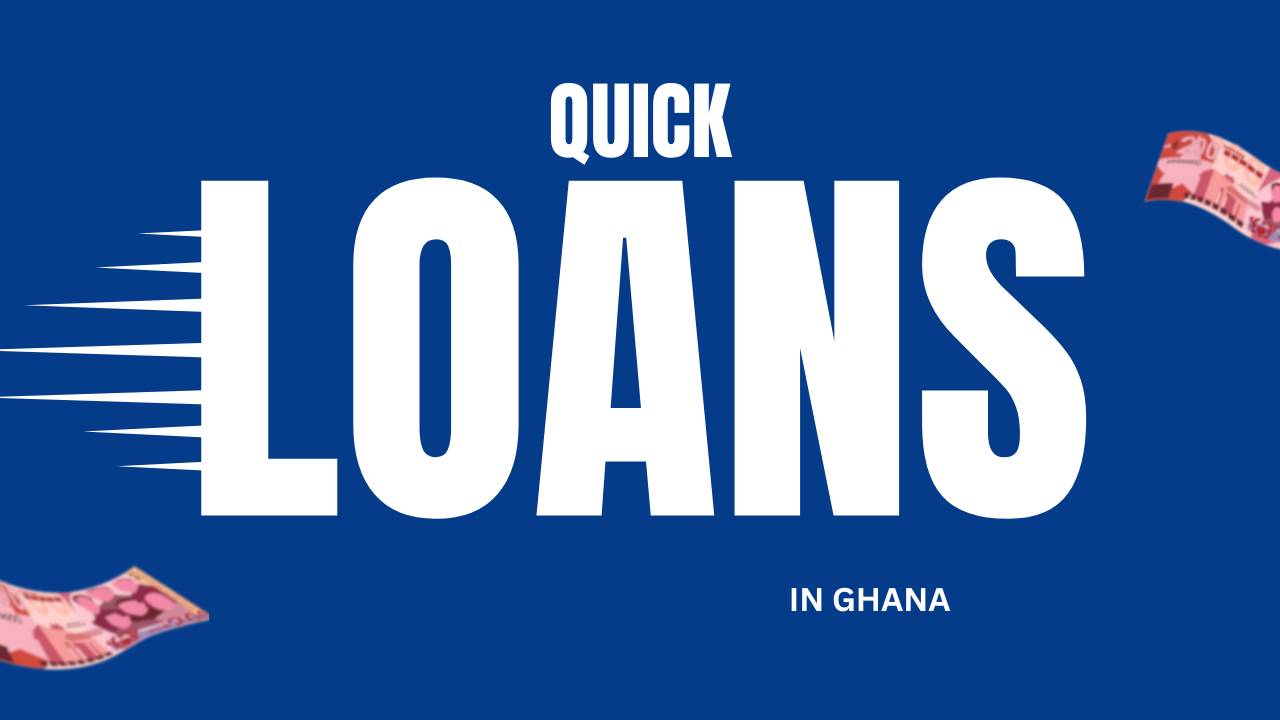Access to credit and loans has become an essential element of financial growth in Ghana, supporting individual needs, small businesses, and overall economic development. The Ghanaian loan sector has evolved rapidly in recent years, with both traditional and alternative lending institutions stepping in to meet growing demand. This article explores the trends, opportunities, and challenges shaping the loan market in Ghana today.
1. Growth of the Loan Market in Ghana
Loans in Ghana are available through a variety of sources, including traditional banks, microfinance institutions, savings and loans companies, and digital lenders. In recent years, Ghana’s loan market has experienced growth due to increasing demand from individuals seeking financing for personal needs, businesses looking to expand, and the overall economic dynamism. Despite these opportunities, access to loans remains limited for some segments of the population, particularly those with lower income or informal employment.
The Ghanaian government has implemented several initiatives to enhance financial inclusion and encourage lending. Programs such as the Ghana Microfinance Policy and the establishment of regulatory frameworks by the Bank of Ghana have boosted confidence in the sector, providing a supportive environment for growth. Additionally, partnerships between local banks and international organizations, including the World Bank and the International Finance Corporation, have further stimulated access to credit by creating frameworks that benefit both lenders and borrowers.
2. Types of Loans Available
In Ghana, several types of loans cater to different financial needs:
- Personal Loans: These loans are intended for individuals seeking to meet personal expenses such as education, medical bills, or home improvements. They are typically offered by banks and microfinance institutions and may be secured or unsecured.
- Business Loans: Small and medium enterprises (SMEs) are major drivers of the Ghanaian economy, and business loans provide essential financing for growth, operations, and expansion. Business loans often require collateral, which can limit access for smaller enterprises or informal businesses without substantial assets.
- Mortgage Loans: Ghana’s real estate sector is growing, and mortgage loans are increasingly available for individuals looking to purchase homes. However, high-interest rates and stringent eligibility criteria limit accessibility for many Ghanaians.
- Digital Loans: Recently, digital lenders have entered the market, offering quick, convenient loans through mobile platforms. These loans have short repayment periods and are ideal for small, urgent expenses. Despite their high interest rates, digital loans have gained popularity, especially among young people and those with limited access to traditional banking.
3. Key Trends in Ghana’s Loan Sector
The loan sector in Ghana is being shaped by several trends, primarily driven by technological advancements, regulatory reforms, and changing consumer preferences:
- Digital Lending: The growth of mobile technology has led to an increase in digital lending solutions. Companies like MTN Mobile Money have partnered with banks to offer mobile loans that cater to a wide audience, including individuals without traditional banking access.
- Interest Rate Capping and Regulations: The Bank of Ghana’s efforts to manage interest rates have led to a more regulated market, aiming to reduce excessive interest rates and protect borrowers. However, these regulations also pose challenges to lenders who rely on high-interest margins to cover risk, which can limit loan availability.
- Financial Literacy: As more Ghanaians gain access to credit, financial literacy has become essential to help borrowers understand loan terms, avoid over-indebtedness, and make informed financial decisions. Banks, NGOs, and governmental bodies are increasingly focusing on financial literacy programs to promote responsible borrowing.
4. Opportunities and Challenges in the Loan Market
The loan market in Ghana presents significant opportunities. With increasing demand for credit, particularly among the youth and SMEs, lending institutions have a unique opportunity to capture new market segments. Additionally, partnerships between fintech companies and traditional banks are likely to enhance loan accessibility, driving financial inclusion and empowering consumers and businesses alike.
However, the loan market also faces several challenges. High-interest rates are a significant hurdle for many Ghanaians, as lending institutions aim to balance the risk of default with profitability. Limited access to formal banking, particularly in rural areas, restricts many individuals and businesses from accessing credit, often pushing them toward informal lenders with potentially exploitative practices.
Another challenge is the risk of over-indebtedness among borrowers. The popularity of digital loans has made credit readily accessible, but without adequate financial literacy, borrowers may find themselves unable to manage their debts effectively. Regulatory efforts will need to balance promoting accessibility with protecting consumers from predatory lending practices.
5. The Path Forward for Loans in Ghana
For the loan sector in Ghana to reach its full potential, a multi-faceted approach is required. Financial institutions, regulators, and consumer advocacy groups must work together to create an ecosystem that supports fair lending practices while encouraging financial inclusion. Innovative digital solutions can help bridge the gap between traditional banking and underserved populations, especially with the expansion of mobile money platforms.
Additionally, efforts to enhance financial literacy will be vital to ensuring that borrowers understand their rights and responsibilities when taking on debt. Greater transparency in loan terms, particularly regarding interest rates and fees, will also contribute to a more sustainable loan market.
The future of the loan market in Ghana is promising, marked by opportunities for innovation and growth. By addressing key challenges such as high-interest rates, limited access to banking, and the need for financial education, Ghana’s lending institutions can play a pivotal role in driving economic progress and enhancing financial inclusion. With responsible lending practices, innovative technology, and supportive regulations, the loan sector in Ghana can be a powerful catalyst for personal and business growth across the country.




No comments yet
Be the first to share your thoughts!